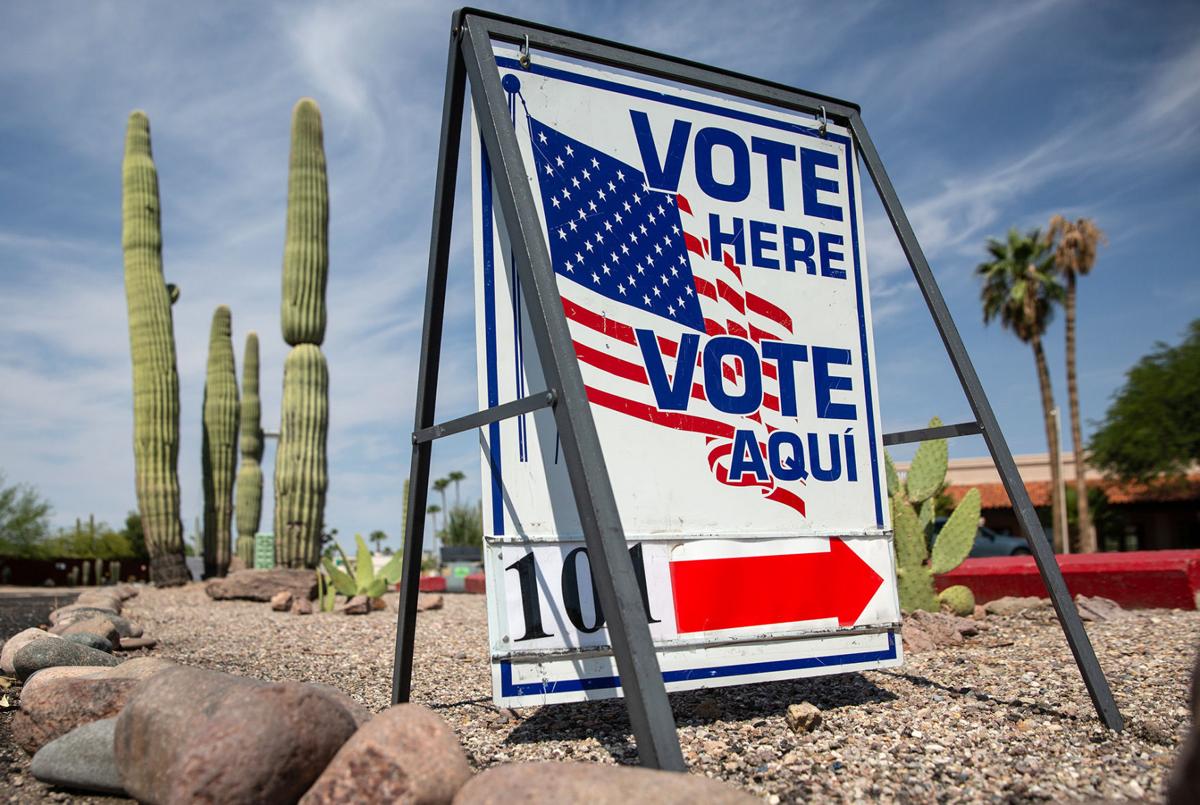PHOENIX — Foes of Proposition 314 are making a last-ditch effort to convince the Arizona Supreme Court that allowing local police to arrest border crossers and setting enhanced penalties for selling deadly fentanyl are not the same subject.
Hanging in the balance is whether voters will see it on the November ballot.
In new filings, attorney Jim Barton told the justices that lawmakers are free to put multiple provisions into a single measure and send it to the ballot for voter consideration. But he said the Arizona Constitution puts limits on what can be in a package, spelling out that every act “shall embrace but one subject and matters properly connected therewith.’’
Barton, representing Living United for Change in Arizona, a Latino activist group, said what Republican lawmakers put into the package under the name of the “Secure the Border Act’’ hardly qualifies under what is known as the “single-subject rule.’’
“The act embraces at least three distinct subjects: unlawful entry, unlawful presence, and importing foreign-made illicit drugs,’’ he wrote.
Barton called it a “classic example of the pernicious practice ... of logrolling,’’ putting multiple issues into a single take-it-or-leave it package so that voters who want one provision have to also agree to take the rest of it.
He told the justices that for those reasons, it should not appear on the Nov. 5 ballot.
Attorney Andrew Gaona, representing several different Latino rights groups also opposed to the ballot measure, told the justices in his own legal filing that they might be able to consider the provisions dealing with immigration as a single subject.
One would allow state and local police to arrest those who enter Arizona from Mexico at other than a port of entry. It carries criminal penalties but also allows judges to drop the charges against those who agree to deportation.
Two others deal with the use of false documents by those not lawfully present in the country to obtain employment or public benefits.
“But prescribing a new crime for every adult for the sale of lethal fentanyl has nothing to do with an individual’s immigration status,’’ Gaona said.
The way the law is worded, the provision, which would impose a presumptive 10-year sentence if someone sold fentanyl that caused the death of another, would apply to any individual, whether in this country legally or not.
Supporters of the measure argued that some of the fentanyl does come from Mexico. They got Maricopa County Superior Court Judge Scott Minder to accept legislative findings — essentially an intent clause in the proposal — about the dangers of fentanyl and the impact of bringing it across the border, including the claim that it entices people to enter this country illegally.
Minder ruled that makes the proposed new crime “logically or in popular understanding connected’’ to illegal border crossing.
Gaona said that misses the point.
“The mere fact that some fentanyl may come through what the Legislature declares to be an ‘unsecure border’ is of no moment, particularly when considering that fentanyl is approved by the Food and Drug Administration for use as an analgesic (pain-related) and anesthetic,’’ he told the justices.
Gaona acknowledged that lawmakers are free to declare any number of items that might cross the border harmful, ranging from fruits and vegetables to exotic animals, bulk cash, firearms or dangerous consumer products. But he told the justices they would have to do any of these things in legislation or ballot measures that did not also include the provisions related to border crossers and use of false documents by people not here legally.
GOP lawmakers did make a last-minute change to try to tie the issues of fentanyl sales and illegal immigration together: They said someone charged with a crime could escape that presumptive 10-year prison term by providing proof that the fentanyl or the chemicals that made it were either manufactured in the United States or were lawfully imported.
That provision drew derision from House Minority Leader Lupe Contreras when the measure was being debated.
“I don’t think the fentanyl pill’s going to have a stamp on the back that says ‘hecho in Mexico,’ ‘’ said the Avondale Democrat.
Attorney Kory Langhofer, representing the Legislature, conceded during arguments earlier this month in Minder’s court that it would be rare for a person charged with the offense to prove a negative: that the drugs didn’t originate in Mexico. But he told the trial judge that doesn’t affect the legality of the enhanced penalty — and putting it into a border security proposal — even if it is unlikely that someone might be able to use that legal defense.
The justices themselves will have to decide the question of whether Prop. 314 appears on the ballot on a take-it-or-leave-it basis. That’s because if they conclude that one or more provisions violate the single-subject rule, they cannot simply excise the offending provisions but have to reject the proposition in its entirety.
Lawmakers have a week to submit their arguments to the justices, with a decision unlikely to come before the end of the month.





